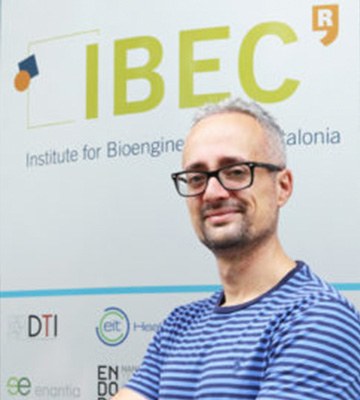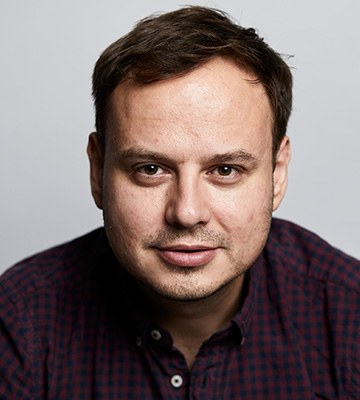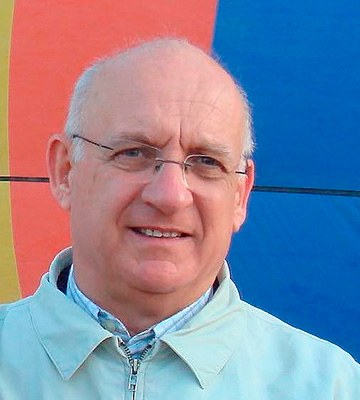European grants for excellent research awarded to Ariadna Quattoni, from the Department of Computer Science, and Xavier Oliver, from the UPC-CIMNE
The European Research Council (ERC) has awarded a Starting Grant to Ariadna Quattoni, a researcher at the Department of Computer Science, to develop a machine learning project, and a Proof of Concept grant to Xavier Oliver, a professor and researcher at the CIMNE, to launch a computational design project. In addition, researchers Dmitri Efetov, from the ICFO, and Loris Rizzello, from the IBEC, which are UPC-affiliated institutes, will receive Starting Grants to carry out cutting-edge research in the fields of Physical and Engineering Sciences and Life Sciences, respectively.
Oct 28, 2019
The main objective of the project is to develop new machine learning algorithms for natural language processing that are capable of solving specific questions with minimal human intervention. The expected result is the interactive learning of AI-based systems, a technology that would help broaden the use and scope of AI systems to new sectors and organisations with specific needs and fewer resources to record the large amount of data that is currently required.
Quattoni works as a researcher at the Relational Algorithmics, Complexity and Learnability Laboratory (LARCA) and the Natural Language Processing Group (GPLN), both located at the UPC’s Barcelona School of Informatics (FIB).
Researchers Dmitri Efetov, from the Institute of Photonic Sciences (ICFO), and Loris Rizzello, from the Institute of Bioengineering of Catalonia (IBEC), which are linked to the UPC, have also obtained a Starting Grant to develop pioneering research. Dmitri Efetov, the leader of the research group, will pursue the project Understanding unconventional superconductivity in twisted flatlands (SuperTwist), selected by the ERC in the field of Physical and Engineering Sciences, with the aim of uncovering the nature of superconductivity in “magic angle” graphene. Efetov will use disruptive and innovative measurement techniques in the field of materials science to experiment to scale with this material.
Loris Rizzello, a researcher of the IBEC’s nanobioengineering group, will develop the project Pandemics outbreaks rationalized: towards a universal therapy to eliminate intracellular pathogens and drug resistance (PANDORA). The project, selected in the field of Earth Sciences, aims to revolutionise the way we cure infections caused by intracellular pathogens by finding a universal therapy that attacks infectious diseases and avoids antibiotic resistance. More specifically, it will seek solutions that help eradicate tuberculosis, one of the worst pandemics so far, identifying the molecular “barcode” of infected cells in order to design polymeric nanoparticles that selectively attack these cells without harming healthy cells. This therapy would represent a revolution in the field of new antimicrobial agents.
This year, 408 Starting Grants were awarded to scientists who are conducting research in Europe, out of a total of 3,106 applications, 20 of which were for projects of excellence developed in Spanish institutions. These grants will help them to create their own research teams and drive innovative proposals in all disciplines.

Ariadna Quattoni, researcher from the Department of Computer Science

Loris Rizzello, researcher from the IBEC’s nanobioengineering group

Dmitri Efetov, researcher from the Institute of Photonic Sciences (ICFO),
Professor Xavier Oliver, a researcher at the International Center for Numerical Methods in Engineering (CIMNE), an institution affiliated to the University, is one of the four researchers in Spain who received a Proof of Concept (PoC) grant last July for the project Computational design and prototyping of acoustic metamaterials for tailored insulation of noise (METACOUSTIC). These grants, also called by the ERC, aim to help researchers attract capital to make their research marketable and set up new companies.

The innovative solution that METACOUSTIC offers to the market is designing tailored solutions that meet specific soundproofing requirements according to each environment. This technology identifies and suppresses the exact and unique noise spectrum signature that needs to be attenuated by exploiting the locally resonant properties of material microstructure. The tailored nature of this solution will not only provide much lighter products, but also dramatic innovation and improvement compared to soundproofing solutions so far.
In 2017, Xavier Oliver received his first Proof of Concept grant for the CATALOG project, which aimed to develop and launch numerical tools and industrial software for multiscale analysis and high-performance simulation of materials in engineering. Five years before that, in 2012, the ERC awarded Oliver an Advanced Grant to pursue the COMP-DES-MAT project, which aimed to develop advanced techniques for designing new engineering materials, tailored to their use-specific needs and using numerical simulation methods.
Oliver, who is a professor of Continuum Mechanics and Structural Theory, conducts research in the fields of simulation sciences and computational mechanics. He is part of the Department of Civil and Environmental Engineering and several research groups and teaches at the UPC’s Barcelona School of Civil Engineering (ETSECCPB).
PoC grants are intended for scientists with a consolidated career who have recently conducted a cutting-edge research project with an ERC grant. They were created by the ERC’s Scientific Council in 2007 to complement the range of core grants and other activities of the H2020 programme. The budget for the whole 2019 PoC call, which is developed in three rounds, is 25 million euros.


